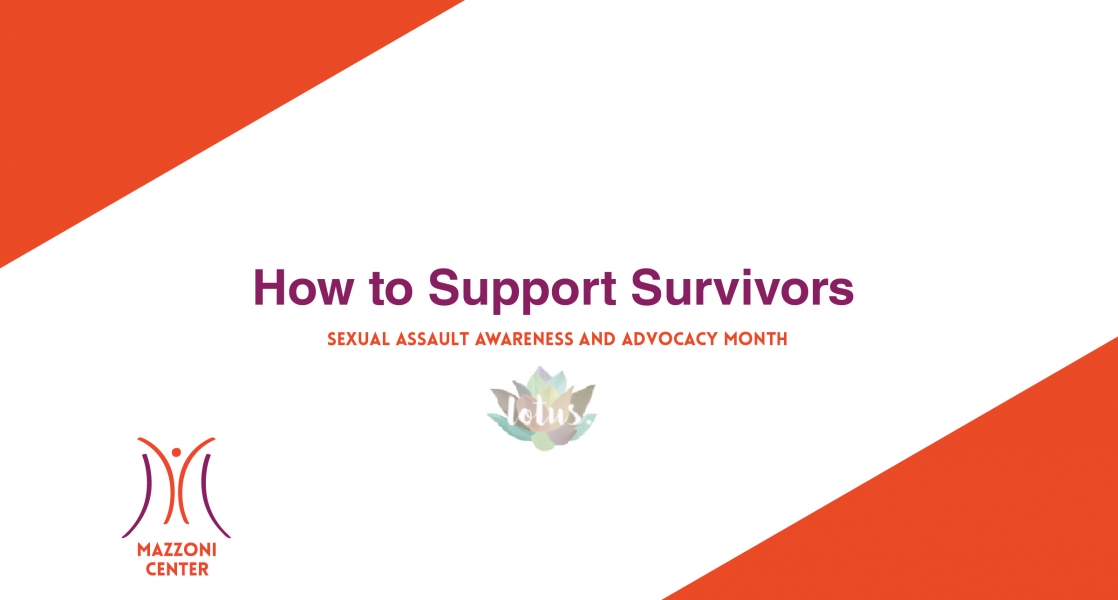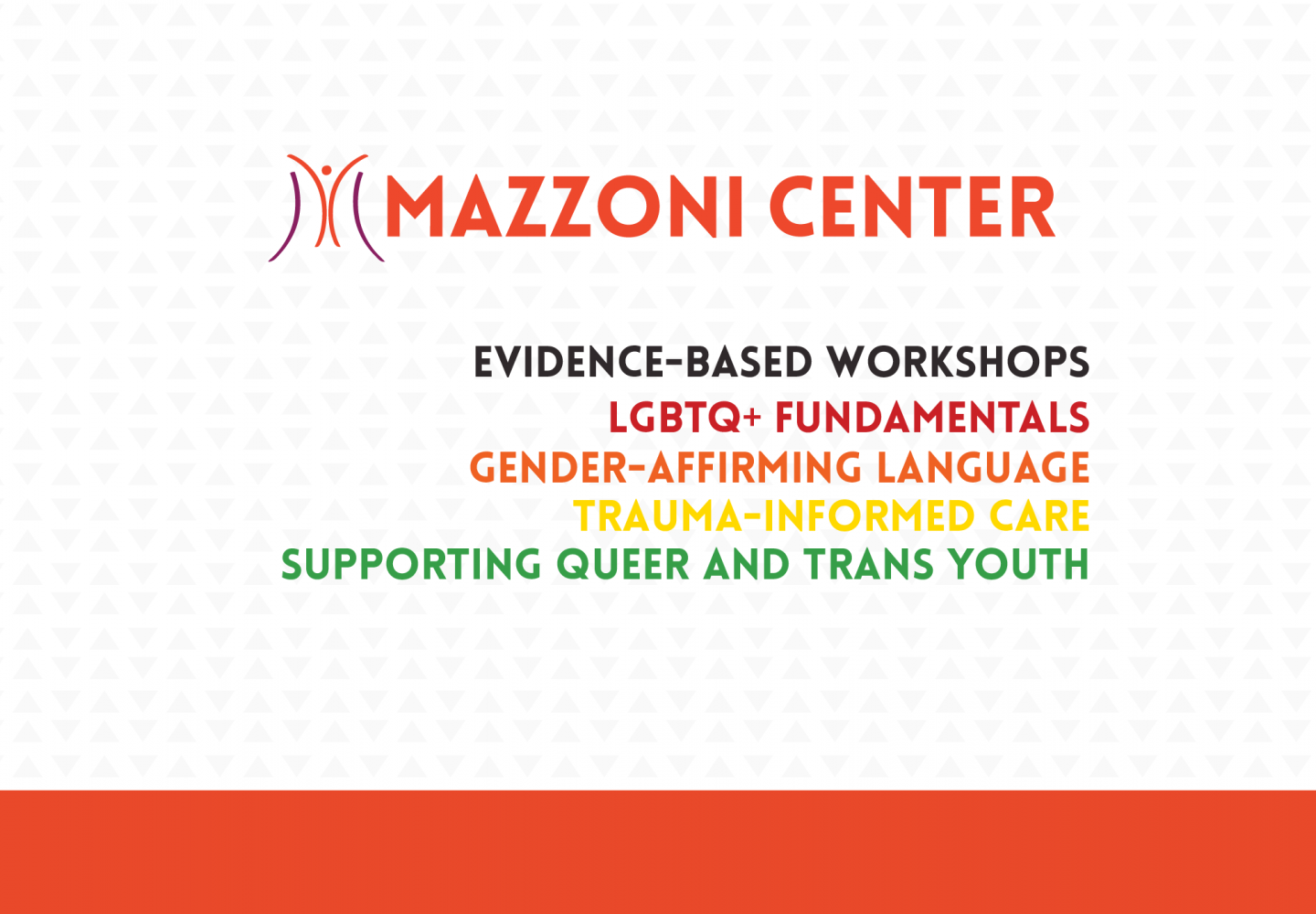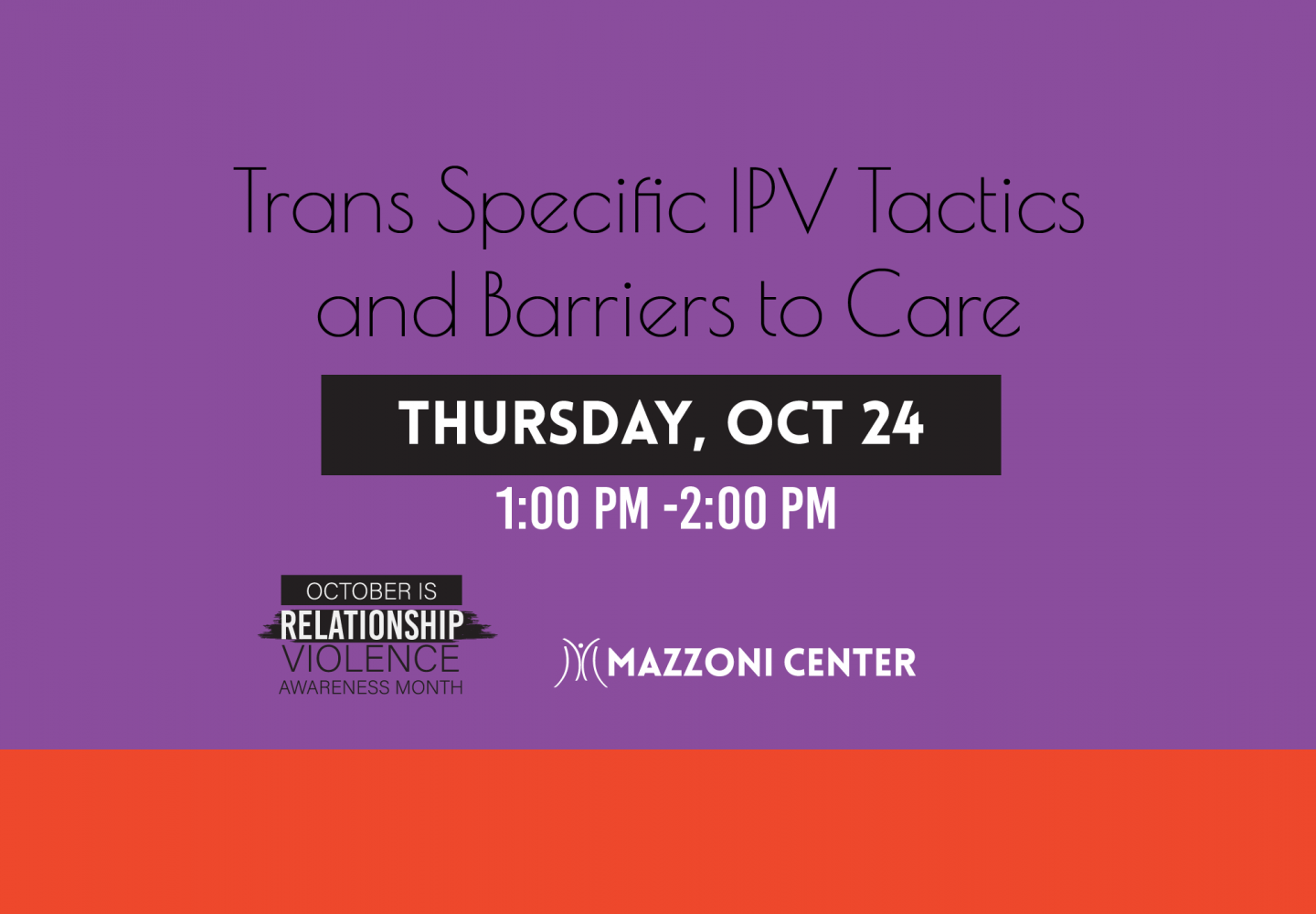How to Support Survivors | Sexual Assault Awareness and Advocacy Month
How to Support Survivors | Sexual Assault Awareness and Advocacy Month

Hello and welcome to the third installment of our Sexual Assault Awareness and Advocacy Month blog post series! Our first post was about sexual violence and the LGBTQ+ community, and our second post discussed consent and how to practice it. Today we will explore how to support survivors. Our last post will go out next Monday to look at community responses to sexual violence.
To the LGBTQ+ folks who have experienced sexual violence: we believe you. If you need support, please call WOAR (Philadelphia Center Against Sexual Violence) at their 24-hour crisis hotline number: 215-985-3333.
Knowing how to support survivors of sexual violence can be immensely challenging, but we are here to help you. If someone discloses to you that they are a survivor of sexual violence, it is a big deal! The BEST acronym can be a valuable way to remember how to support survivors. BEST stands for believe them, empower them, support them, and take care of yourself. Before exploring the BEST method, though, it is essential to ensure the survivor is not experiencing an immediate health or safety concern.
Health and safety concerns might look like suicidality, an injury that needs medical attention, or an unsafe home situation. If there is an immediate health or safety concern, work with the survivor to see how you can remedy the problem. Options could include going to the hospital, contacting an additional support person, utilizing a hotline service, staying with the survivor so they know they are safe, etc. Once you are sure that the survivor's immediate physical health and safety needs are being met, proceed to the BEST method!
B: Believe them. It is a big deal when someone discloses that they have experienced sexual violence. Disclosures can be difficult for survivors, and it is a sign that they trust you if they choose to disclose to you. Because of this, it is crucial to let the survivor know that you believe them. Victim blaming is very prevalent in the United States, and immediately letting a survivor know that you believe them can significantly impact their healing. You could say things like: Thank you for sharing that with me! I believe you, and I am here for you. I am so sorry that it happened to you, and I want to let you know I believe you. It must have taken a lot of courage to tell me about this, and I believe you.
You can also let the victim know what happened is not their fault and that you are here to listen. When the survivor is sharing, let them set the pace and do not pressure them to talk- they will tell you how much they are willing to disclose. Remember that you cannot fix what happened, but you can listen and let the survivor know that someone is supporting them.
E: Empower them. Sexual violence takes power and the ability to choose away from the victim or survivor. After sexual violence has occurred, it is important to give choices back to the survivor and let them determine what next steps (if any) will happen. When giving options, it can be helpful to avoid open-ended questions so the survivor does not get overwhelmed. Empowering the survivor can be as simple as asking them if they want the door open or closed while you talk or if they would like to drink water or coffee. Giving options, even for small-scale stuff, allows the survivor to control their environment and have power in what happens to them.
For the bigger stuff such as reporting to the police, disclosing to others, accessing victim services, or even going to the hospital, make sure to follow the survivor's lead. It can be second nature
to assume what next steps the victim of sexual violence should take- but instead of telling them what you think is best, allow the survivor to make their own decisions.
S: Support them. After someone discloses to you, let them know that you are here to support them. You could ask if they have any other people in their life who can assist them or see if any immediate needs are not being met. Another option would be to talk about resources with the survivor or ask if they would like the number of a victim service's hotline. (WOAR- Philadelphia Center Against Sexual Violence has a sexual violence crisis hotline for Philadelphia residents, and the number is 215-985-3333). Make sure to follow the survivor's lead and only support them in ways they have consented to.
T: Take care of yourself. When you are actively supporting and talking with a survivor, the focus needs to be on them and their needs. That being said, it's vital that you check in with yourself after the fact. Hearing disclosures of sexual violence and supporting someone through it can be challenging. If you are not taking care of yourself, it may impact your ability to support the survivor. Taking care of yourself could look like de-escalating with yoga or meditation, seeing a counselor or advocate to talk through any feelings that came up, or journaling and processing your emotions. It could also look like setting boundaries with the survivor and letting them know your limits for supporting them.
Supporting survivors can seem like a daunting task, but it can be made a bit easier by ensuring the survivor’s health and safety needs are met and by using the BEST method to support them. Remember, having one person that believes the survivor can have a significant impact, and your support for victims of sexual violence makes all the difference.
LGBTQ+ Survivors: You are not alone. If you have experienced sexual violence and need assistance, please call WOAR’s 24-hour crisis hotline at 215-985-3333.
Thank you for reading our blog post! You can review this content and give feedback about what LGBTQ+ survivors of sexual violence in Philadelphia need with this survey: https://www.surveymonkey.com/r/SAAAM22
This blog post is part three of a four-part series for Sexual Assault Awareness and Advocacy Month, and was written by May Booth. These blog posts are brought to you through the lotus. program, a grant-funded sexual violence educational program developed in collaboration between Mazzoni Center and WOAR: Philadelphia Center Against Sexual Violence. The lotus. program cultivates the safety and liberation of LGBTQ victims and survivors of sexual violence by inspiring action, centering nonlinear healing, and promoting radical vulnerability through narrative-based educational opportunities for service providers and community members. The lotus. program offers all services free of charge.
This project was supported by 2017-UD-AX-0011 awarded by the Office on Violence Against Women, U.S. Department of Justice. The opinions, findings, conclusions, and recommendations expressed in this document are those of the author and do not necessarily reflect the views of the U.S. Department of Justice, Office on Violence Against Women.


